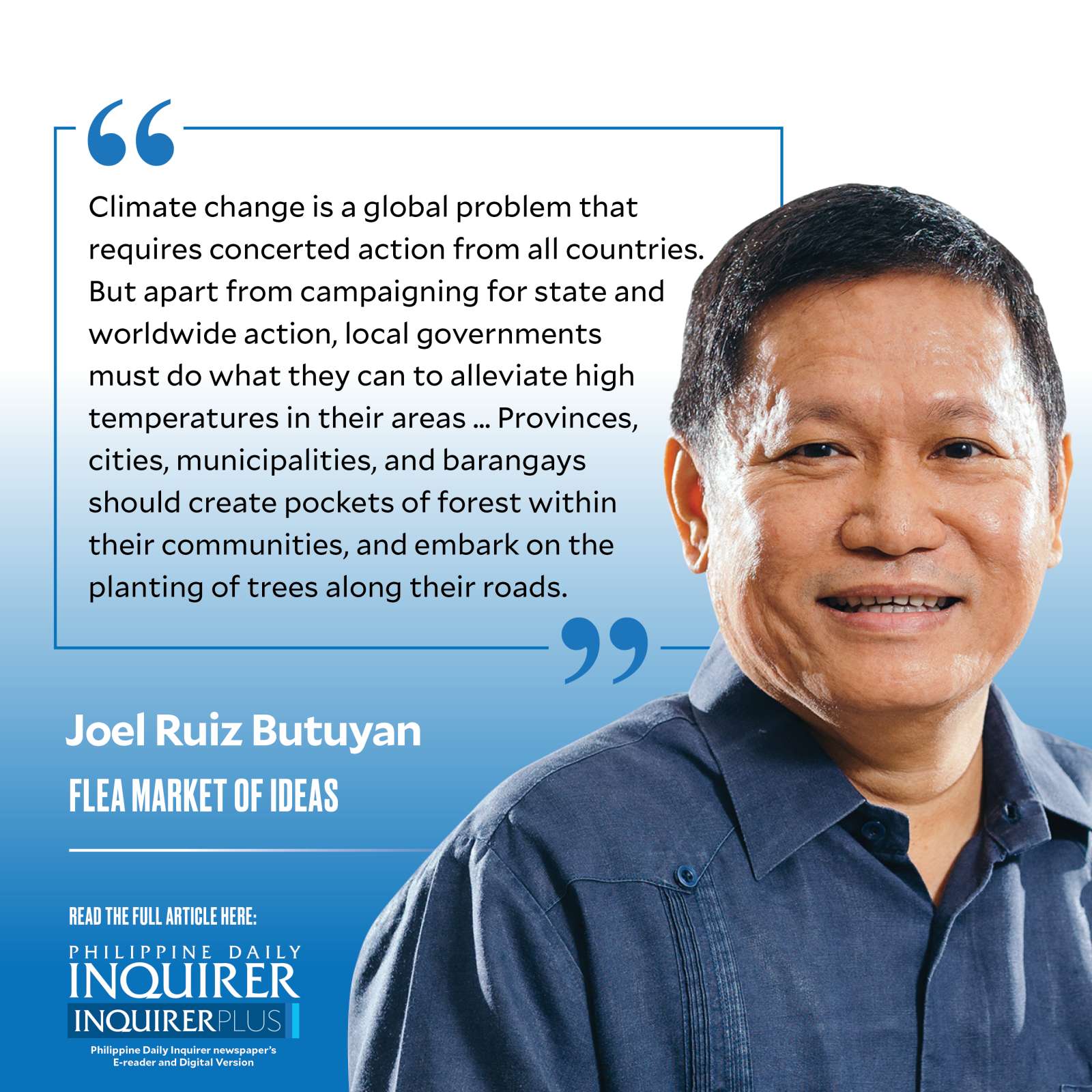Uncharted life of extreme heat

For three days last week, the world registered temperatures that one scientist described as “almost certainly” the hottest that planet Earth has seen for the past 100,000 years. Another scientist went further by declaring that it is “certainly plausible” that the past week was “the warmest days globally in 120,000 years.” While other scientists were more restrained in their words, they nevertheless describe the exceptional heat with very disturbing words such as “extraordinary” and “terrifying.”
Unless we spend our days 24/7 inside air-conditioned surroundings, we know what these scientists are talking about. We have been experiencing an alarming level of extreme heat, not only in the past week, but for a couple of months now. The heat becomes unbearable at times, even when we’re inside our homes, and even with electric fans on.
I don’t recall any other period in my more than half a century on this planet when the level of heat has been this intense. Even at night, the heat lingers. I swam in an Ilocos Norte beach one afternoon last week, and the water felt uncomfortably hot. We, in the Philippines, are probably fortunate because the onset of the rainy season brings cloud cover and rain that cools our surroundings now and in the coming months, but when the sky is clear, searing heat returns.
The more fortunate ones among us have access to air conditioning. But imagine life in the slums, especially for babies, old folk, and sick residents who have no choice but to grin and bear with the unforgiving heat. Imagine small entrepreneurs in brownout prone provinces who risk losses because of the spoilage of their frozen supplies. Imagine school children who have to suffer through classes in oven-like classrooms. Imagine farmers and construction workers who toil under direct sunlight. Imagine poultry and piggery establishments that incur immense losses due to heat-related deaths and diseases. According to one meteorological expert, this period of astonishing heat “will have far-reaching repercussions for health, food security, water management, and the environment.”
Scientists say that these record-shattering heat temperatures are due to several factors. The continuing emissions of heat-trapping gases caused by the fuels that humans burn in huge quantities each day. The return of the El Niño weather phenomenon, which is a cyclical weather pattern that causes drought in entire continents. And the massive deforestation that happens yearly worldwide. In a survey cited by the New York Times, the world lost 10.2 million acres of primary rainforest in 2022 alone.
Scientists are predicting that this period of high temperatures will continue up to the end of this year, and even until next year. In fact, weather experts forecast that it will even be hotter next year. Periods of extreme heat cause mankind to burn more fuel because of the greater need for air conditioners. It also increases incidents of wildfire that worsen deforestation and aggravate the volume of smoke and soot in our atmosphere. Extreme temperatures trigger actions and events that further cause temperatures to rise.
Climate change is a global problem that requires concerted action from all countries. But apart from campaigning for state and worldwide action, local governments must do what they can to alleviate high temperatures in their areas. One only needs to sit under a tree to notice the lowered temperature caused by an abundance of foliage, and experts attest to the ability of greenery to lower temperatures. Provinces, cities, municipalities, and barangays should create pockets of forest within their communities, and embark on the planting of trees along their roads.
In the past couple of months, different parts of our country have experienced extreme heat beyond 40 degrees Celsius. With very hot days becoming threats to health and physical safety, our government should consider instituting heat signals that would trigger automatic suspension of classes and work, mandatory work-from-home protocols, or to serve as advisory to children and senior citizens to refrain from being under the sun. Just as we have typhoon signals, we should now have heat signal protocols because of our new climate reality.
The world is “walking into an uncharted territory,” one climate expert said in an interview with CNN. “We have never seen anything like this in our life.” Scientists have long been warning us that this day will come, if we don’t mend our ways. They have all the right to say, “We told you so.”
—————-
Comments to fleamarketofideas@gmail.com
















